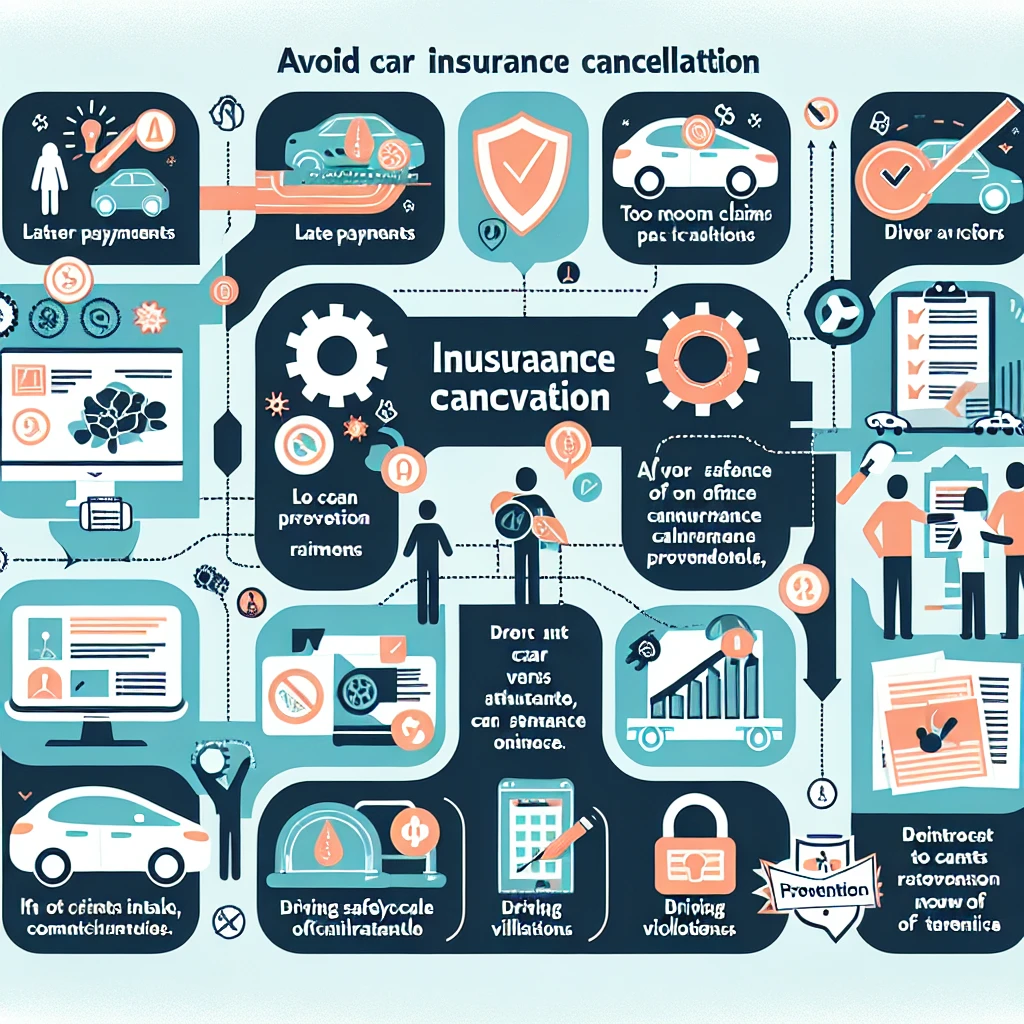KEY POINTS
- Excessive late payments could jeopardize your policy.
- Frequent accidents might lead to insurance cancellation.
- Failure to disclose ride-hailing work could result in being dropped by your insurer.
Car insurance is mandatory in most states, yet insurance companies reserve the right to choose whom they insure. They can terminate your coverage for various reasons.
Outlined below are several reasons your insurance company might cancel or refuse to renew your policy and strategies to prevent this from occurring.
Contents
Since 2023, car insurance premiums have escalated by an average of 26%, making affordable car insurance increasingly elusive. This surge has strained many budgets, but neglecting payments, whether late or missed entirely, can swiftly lead to policy cancellation.
While it’s uncommon for insurers to cancel a policy over a single missed payment, recurrent late payments could jeopardize your coverage.
How to prevent it: To avoid late payments, consider setting up automatic premium deductions from your checking account. Many insurers offer discounts for opting into automatic payments.
2. Numerous accidents within a brief timeframe
Insurance companies continuously assess risk. If you’re involved in multiple accidents, even if not directly at fault, the insurer might still deem you too risky and opt not to renew your policy.
There isn’t a universal standard for the number of accidents that might lead to non-renewal, but Progressive Insurance indicates that multiple accidents within a three-year span could result in your policy not being renewed.
How to prevent it: Consider enrolling in a defensive driving course to refresh your driving skills and learn to avoid high-risk behaviors. Many insurers provide discounts, sometimes up to 20% of your premium, for completing such courses.
3. Undisclosed ride-hailing employment
Indeed, car insurance companies can cancel your policy if you drive for a ride-hailing service without informing them.
Insurers evaluate how, when, and how often you use your vehicle when formulating your policy. If you start using it for ride-hailing, they need to be informed.
Some insurers won’t cover ride-hailing activities, while others might require additional coverage.
How to prevent it: Simply inform your insurance company before you begin using your vehicle for ride-hailing. Inquire whether your existing policy covers it or if additional coverage is necessary.
4. Excessive claims filing
Regularly filing insurance claims might lead to non-renewal of your coverage. Occasional claims may increase your premiums, but frequent claims are a warning sign for insurers.
For instance, if you file a claim after someone backs into your car in a parking lot, then another for a break-in months later, your insurer might raise your premiums. However, if your car is subsequently stolen, your policy might not be renewed.
How to prevent it: Avoid filing unnecessary claims, and be cautious about excessive claims that insurers might view as problematic. For example, if you slightly scratch your car backing into a mailbox, consider tolerating the imperfection, especially if you’ve recently filed a claim.
Ultimately, you have significant control over whether your car insurance policy is canceled. If you suspect your policy is at risk or your premiums are excessive, it might be wise to explore other options and compare providers.




